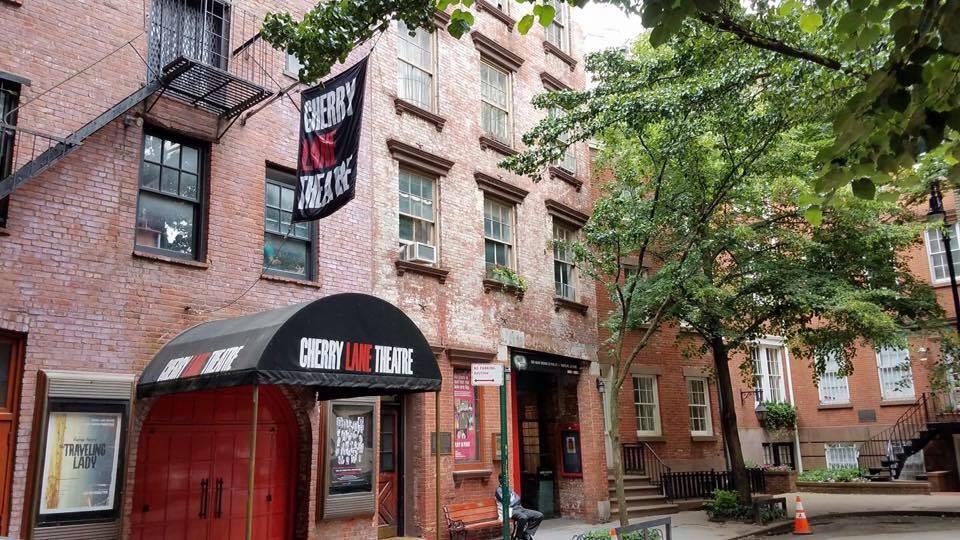
Off-Broadway’s Cherry Lane Theatre, one of the oldest continuously running theatres in New York City, has been sold for $11 million. The Lucille Lortel Theatre Foundation purchased the Greenwich Village building, with the Lortel’s Executive Director, George Forbes set to succeed Angelina Fiordellisi. This news was announced by Cherry Lane’s executive director, Angelina Fiordellisi. The Lortel Foundation had been managing the Cherry Lane Theatre, which is located at 38 Commerce Street in Greenwich Village, for the past 10 years.
“I am so thankful to all of the beloved artists and patrons for the extraordinary privilege, challenges, triumphs, and inspirations they have given me over 25 years of service at Cherry Lane,” said Fiordellisi, who bought the venue in 1996. “It has been a great run. To stand on the stage where so many of our greatest artists, crews, and theatre providers have stood is to know what theatre history really feels like. I wish every success to my friend and colleague George Forbes and the estimable Lucille Lortel Theatre Foundation as they continue the important work of serving artists and audiences in New York.”
Fiordellisi purchased Cherry Lane Theatre in 1996 and oversaw a $3 million renovation of its 179-seat Mainstage and converted a former storage space into the 60-seat Studio Theatre, along with having modernized the lobby and public spaces. With its comfort and understated elegance, Cherry Lane has become widely known, rightfully, as the Jewel of Off-Broadway.

Under Fiordellisi, Cherry Lane has served a wide variety of artistic interests in its Mainstage productions and with its award-winning Mentor Project, which for 20 years has paired emerging writers with established playwrights in the development, rehearsal, and fully staged production of their work. “The Lucille Lortel Theatre Foundation expresses our extreme gratitude to Angelina Fiordellisi for her stewardship of the Cherry Lane Theatre,” added Forbes. “Through her long-standing tenure and leadership, she has helped to propel the work of countless artists and has made the venue a staple of New York City’s cultural life. It has been our great privilege to serve as the managing agent of the theatre under Ms. Fiordellisi’s leadership for the past ten years. The Foundation is excited to expand its footprint and preserve another historic Off-Broadway theatre in Greenwich Village. With the addition of two new stages, we look forward to announcing several new programs shortly, serving more artists, companies and audiences.”
Earlier this month, the Cherry Lane Theatre reopened at full capacity with a return engagement of Jacqueline Novak’s Get On Your Knees.
Writers who have been mentored at Cherry Lane include Katori Hall, Sheila Callaghan, Rajiv Joseph, Anne Washburn, Jocelyn Bioh, Nathan Yungerberg, Ren Dara Santiago, Jiehae Park and Antoinette Nwandu, whose play Pass Over, soon to open on Broadway, was produced by Mentor Project in 2016. Mentors have included Lynn Nottage, Taylor Mac, Craig Lucas, Lucy Thurber, Branden Jacobs-Jenkins, Stephen Adly Guirgis, Kwame Kwei Armah and Diana Oh.
An Historic Theatre
The site of a silo on the Gomez farm in 1817, the building that now stands at 38 Commerce Street was first erected as a brewery in 1836 and later served as a tobacco warehouse and box factory.
In 1923, a group of theater artists led by Evelyn Vaughn, William Rainey, Reginald Travers & Edna St. Vincent Millay, commissioned famed scenic designer Cleon Throckmorton to convert the box factory into Cherry Lane Playhouse. It fueled some of the most ground-breaking experiments in the chronicles of the American Stage. The Downtown Theater movement, The Living Theatre, and Theatre of the Absurd all took root at the lively Playhouse, and it proved fertile ground for 20th century dramaturgy’s seminal voices.
From this village jewel streamed a large succession of plays by nascent writers whose names have lent distinction to the American and international literary and dramatic treasuries from F. Scott Fitzgerald, Dos Passos and Elmer Rice in the ’20s to O’Neill, O’Casey, Odets, Auden, Gertrude Stein, T.S. Eliot and William Saroyan in the ’40s and ’50s to Beckett, Albee, Pinter, Ionesco and LeRoi Jones in the ’60s to Sam Shepard, Lanford Wilson, Jean-Claude van Itallie, Joe Orton and David Mamet in the ’70s and ’80s.


